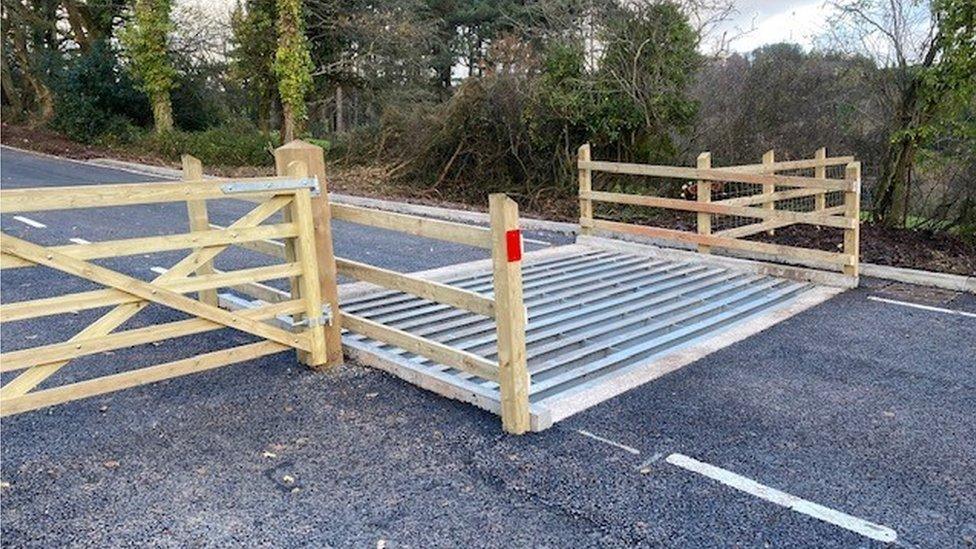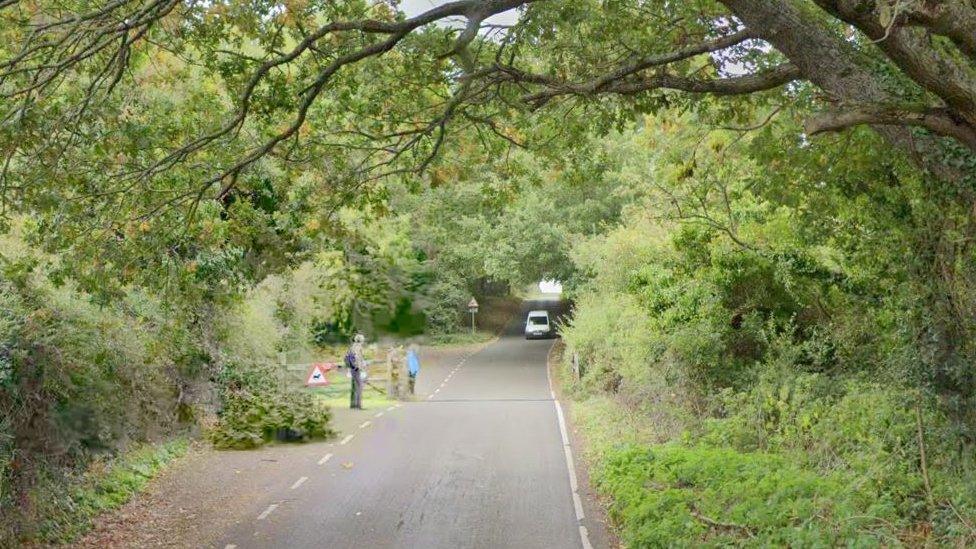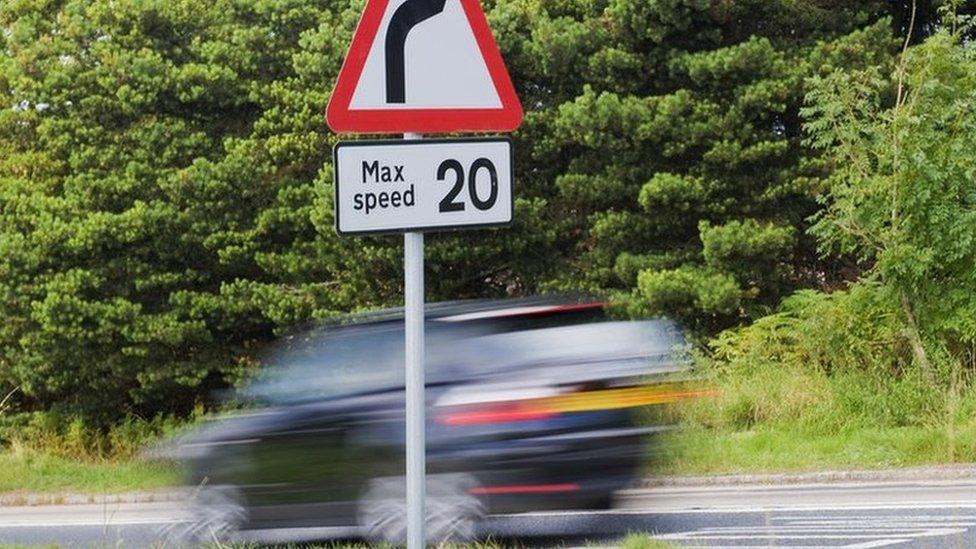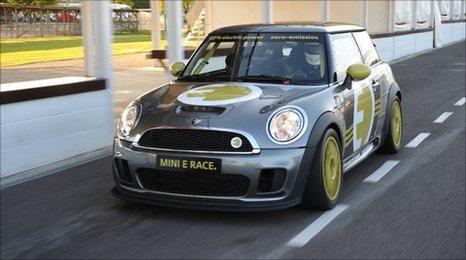Somerset cattle grid mistaken for wall by car sensors
- Published

The council said there had been a "number of incidents of cars leaving the road" at the cattle grid near Minehead
Cars have come off the road trying to cross a cattle grid after sensors mistook it for a wall and slammed on the brakes.
Somerset County Council said the grid had been "causing a very real danger to road users" on Hill Road in Minehead.
The grid, which was cut into the steep hill, "appeared to be an obstruction" to modern car sensors which automatically applied the brakes.
The county council has spent £70,000 "ironing out the problem".
A spokesman said the grid had to be replaced following a "number of incidents of cars leaving the road" but "thankfully there have been no serious collisions".
To create a "virtually smooth ride across the grid", highways teams spent a month raising about 90ft (27.4m) of road and redesigning the "carriageway approaches".

Highways teams spent a month raising about 90ft (27.4m) of the road and redesigning the "carriageway approaches"
Dave Peake, the council's highways service manager, said the issue was something that would "never ever have been considered" when the grid was put in "many years ago".
"It's quite a steep hill and the cattle grid's got to be reasonably level," he said.
"But the problem was this sudden change in gradient. Some of the car's sensors were detecting this as a wall so automatically applied the brakes.
"So we've actually re-profiled it to take out the sudden change in gradient."
Prof Andrew Graves, automotive analyst at the University of Bath, said technology like "assist brake" had been around since the 1980s but "a lot of this technology is not clever enough at the moment".
"If you're following something too closely or if there's a barrier in front of you, suddenly the car will apply its brakes," he said.
"Modern cars are pretty good at doing this but they're still not perfect and sometimes they send out a very confused message."
Related topics
- Published26 July 2019

- Published26 November 2010
